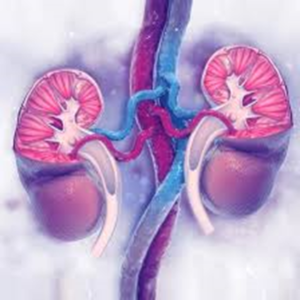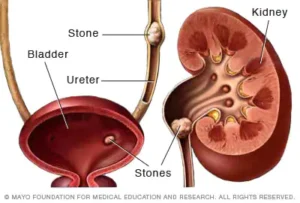Skin
Allergies
Orthopaedic
Gastritis
Respiratory
Kidney

The kidneys filter waste and excess fluid from the blood. As kidneys fail, waste builds up.
Symptoms develop slowly and aren’t specific to the disease. Some people have no symptoms at all and are diagnosed by a lab test.
Medication helps manage symptoms. In later stages, filtering the blood with a machine (dialysis) or a transplant may be required.
Symptoms:
- Of breath.
- Tiredness.
- Blood in your pee (urine)
- An increased need to pee – particularly at night.
- Difficulty sleeping (insomnia)
- Itchy weight loss and poor appetite.
- Swollen ankles, feet or hands – as a result of water retention (edema)
- Shortness skin.

A small, hard deposit that forms in the kidneys and is often painful when passed.
Kidney stones are hard deposits of minerals and acid salts that stick together in concentrated urine. They can be painful when passing through the urinary tract, but usually don’t cause permanent damage.
The most common symptom is severe pain, usually in the side of the abdomen, that’s often associated with nausea.
Treatment includes pain relievers and drinking lots of water to help pass the stone. Medical procedures may be required to remove or break up larger Stones
.
Symptoms:
- Severe, sharp pain in the side and back, below the ribs
- Pain that radiates to the lower abdomen and groin
- Pain that comes in waves and fluctuates in intensity
- Pain or burning sensation while urinating
Other signs and symptoms may include:
- Pink, red or brown urine
- Cloudy or foul-smelling urine
- A persistent need to urinate, urinating more often than usual or urinating in small amounts
- Nausea and vomiting
- Fever and chills if an infection is present


